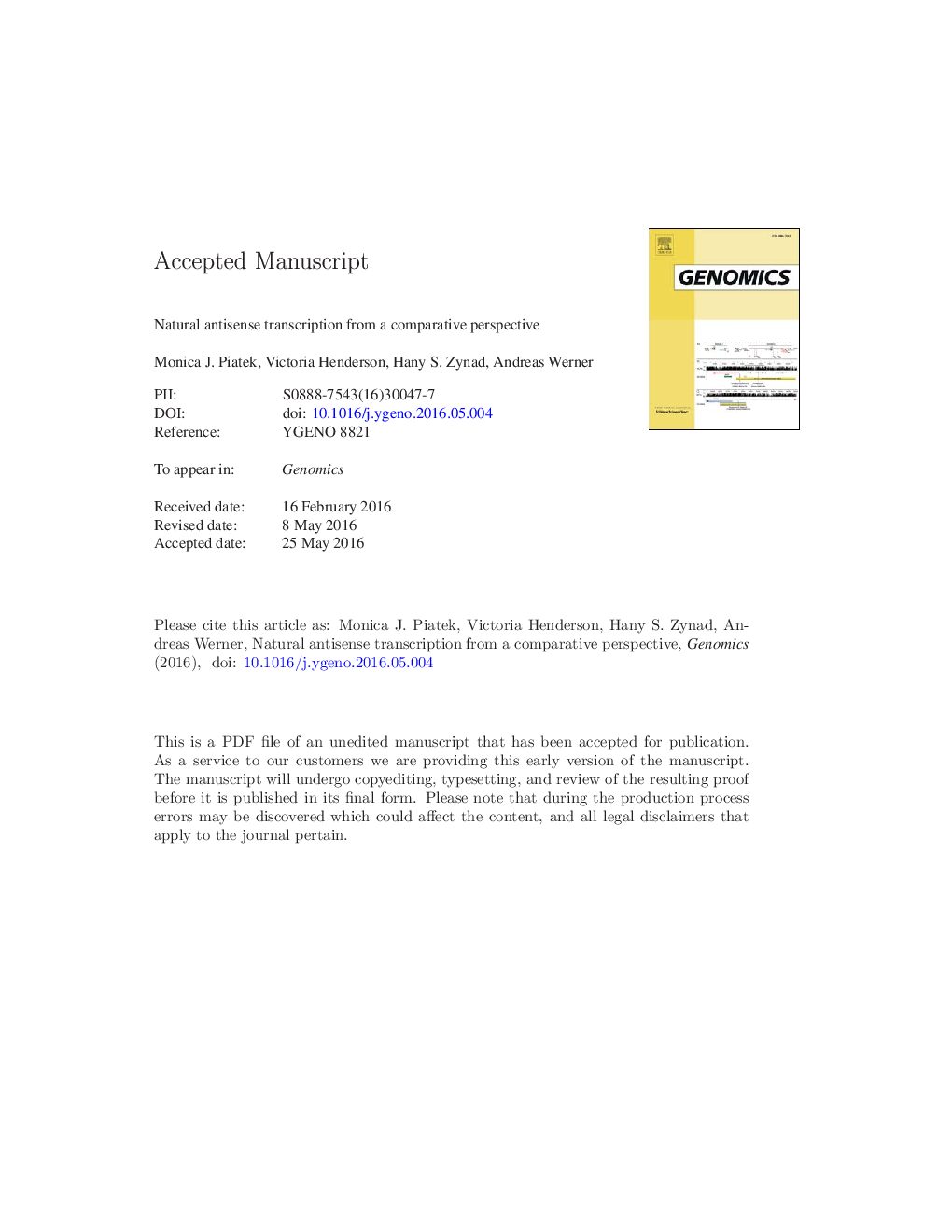| Article ID | Journal | Published Year | Pages | File Type |
|---|---|---|---|---|
| 5590126 | Genomics | 2016 | 22 Pages |
Abstract
Natural antisense transcripts (NATs) can interfere with the expression of complementary sense transcripts with exquisite specificity. We have previously cloned NATs of Slc34a loci (encoding Na-phosphate transporters) from fish and mouse. Here we report the cloning of a human SLC34A1-related NAT that represents an alternatively spliced PFN3 transcript (Profilin3). The transcript is predominantly expressed in testis. Phylogenetic comparison suggests two distinct mechanisms producing Slc34a-related NATs: Alternative splicing of a transcript from a protein coding downstream gene (Pfn3, human/mouse) and transcription from the bi-directional promoter (Rbpja, zebrafish). Expression analysis suggested independent regulation of the complementary Slc34a mRNAs. Analysis of randomly selected bi-directionally transcribed human/mouse loci revealed limited phylogenetic conservation and independent regulation of NATs. They were reduced on X chromosomes and clustered in regions that escape inactivation. Locus structure and expression pattern suggest a NATs-associated regulatory mechanisms in testis unrelated to the physiological role of the sense transcript encoded protein.
Related Topics
Life Sciences
Biochemistry, Genetics and Molecular Biology
Genetics
Authors
Monica J. Piatek, Victoria Henderson, Hany S. Zynad, Andreas Werner,
